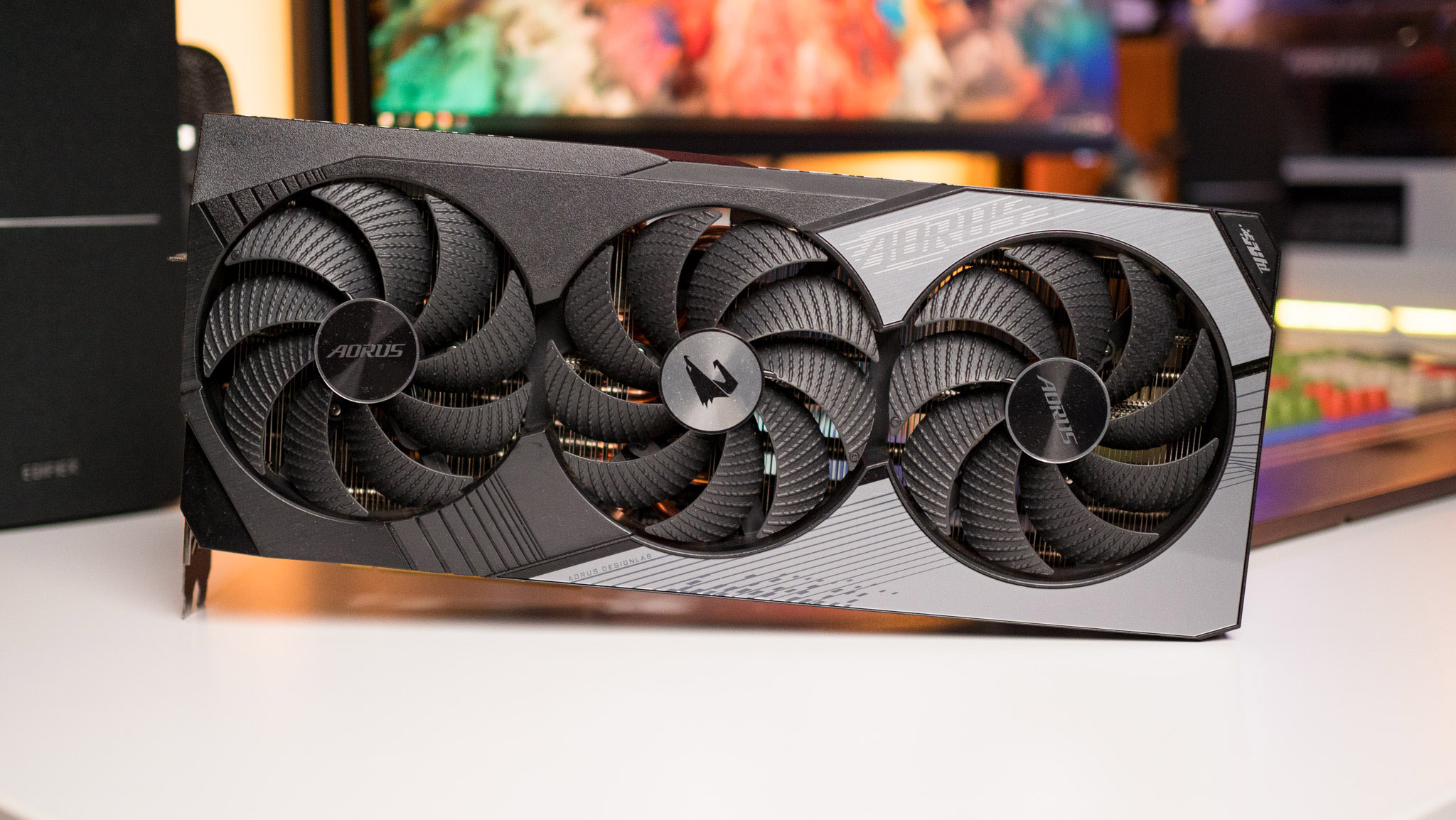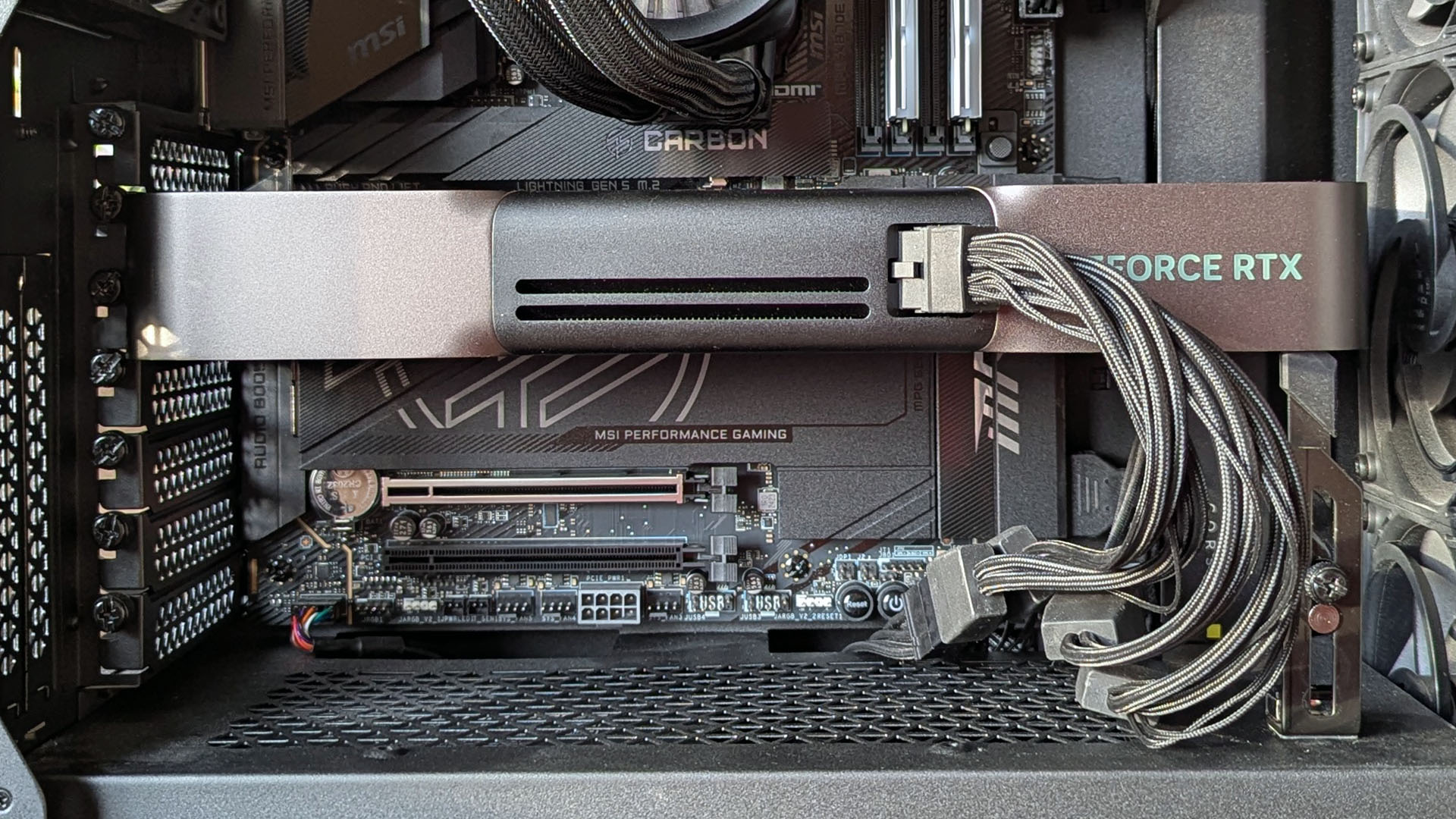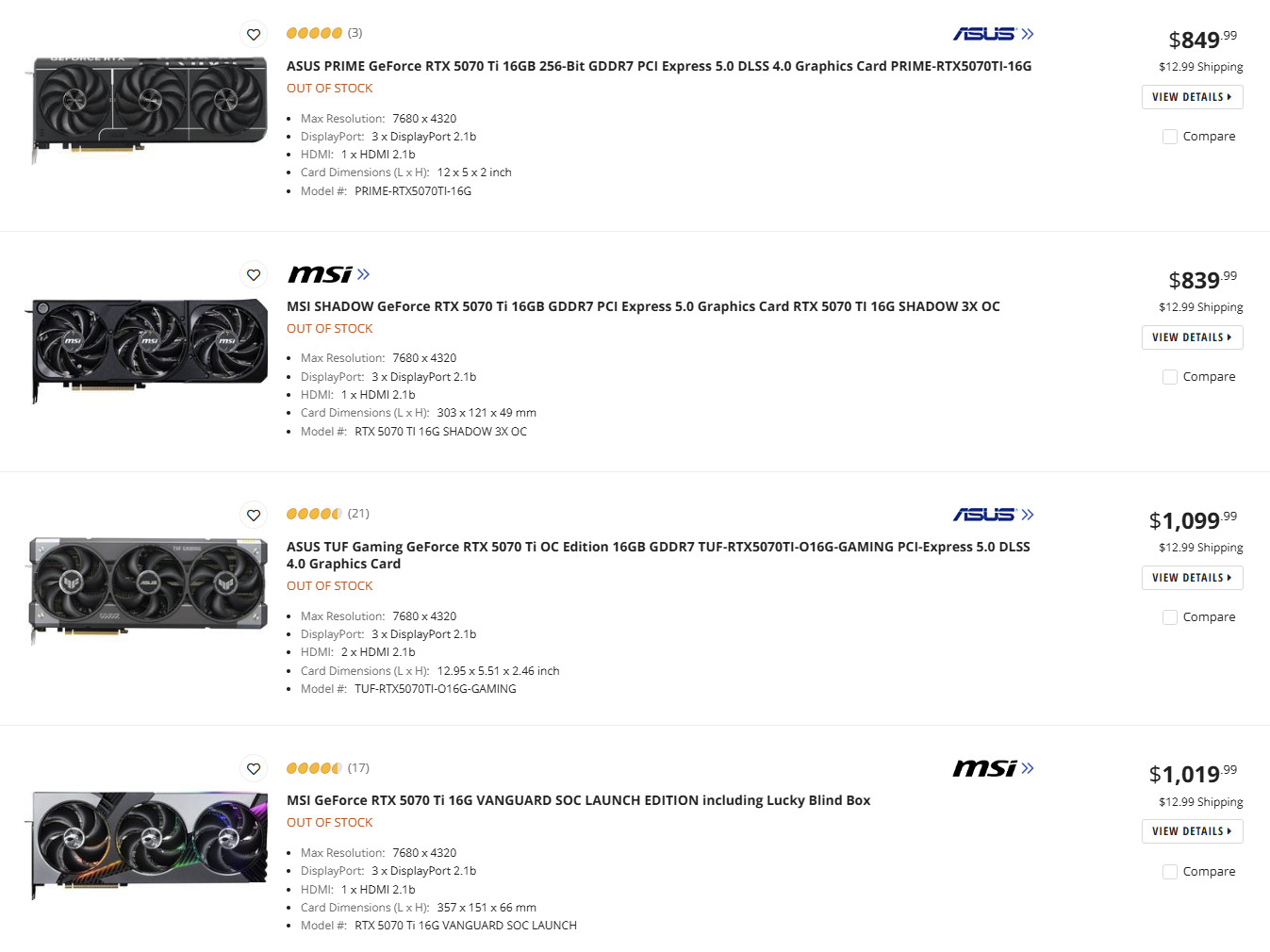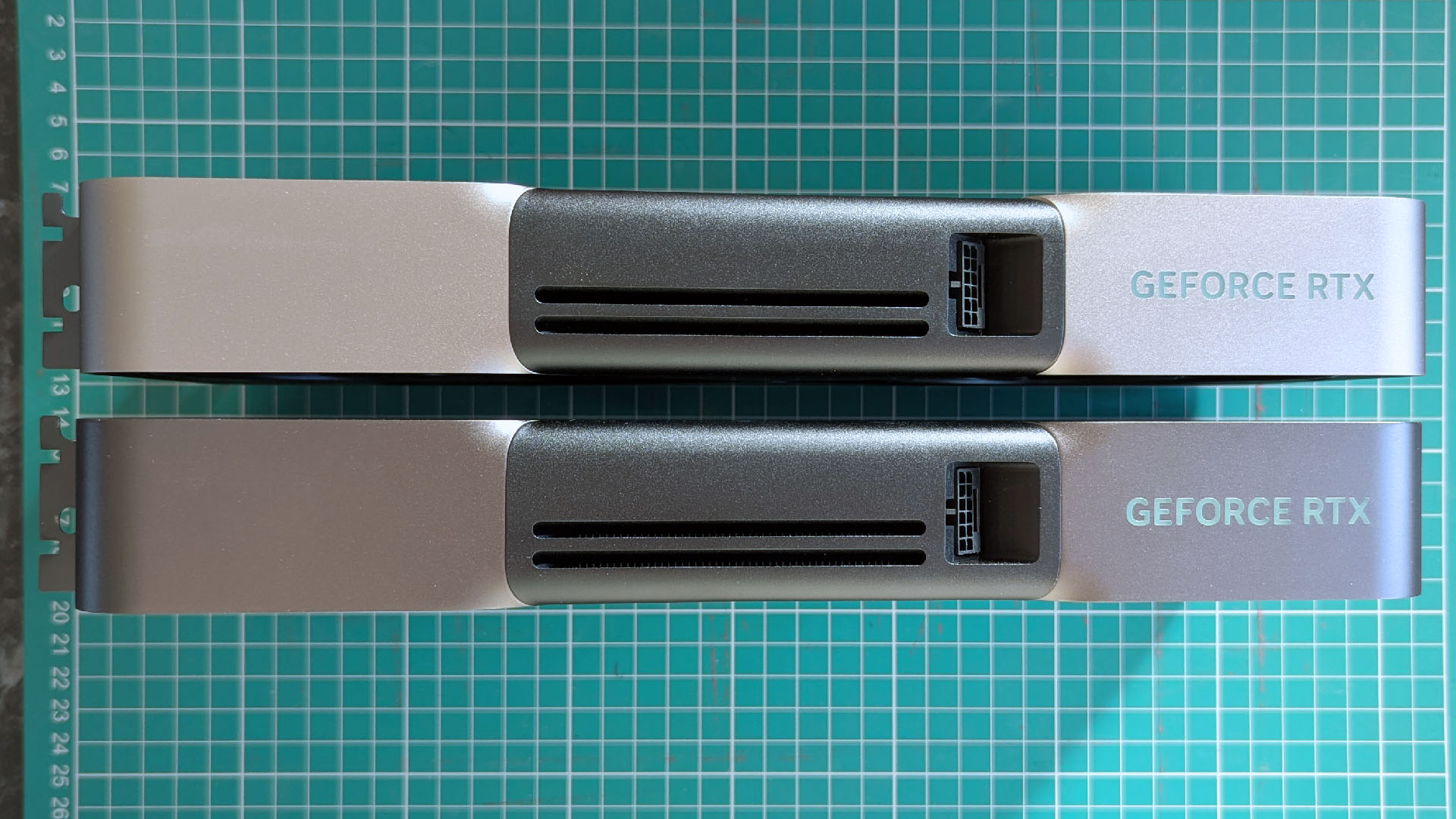
Keeping your PC updated with the latest processor (CPU) and graphics card (GPU) doesn't come cheap, with these pieces usually representing the largest upgrade cost.
It's only natural that enthusiasts, gamers, and creators who rely on these parts are keeping a close watch on rising prices.
Despite the trade war news from April 9 that US President Trump has entered a 90-day reciprocal tariff pause with all countries except China, GPU prices aren't expected to fall.
There's still a pesky 10% flat tariff on all US imports, and the semiconductors used in GPUs fall under a further 25% tariff rate imposed on imported aluminum goods.
In most cases, I do recommend buying a new GPU now before things get worse, but it's not a simple Yes/No answer.
Should I buy a new GPU now before more tariffs arrive?

With market chaos caused by tariffs that seem to change on a daily basis, many are wondering if it's worth buying a new GPU before things get worse.
I have no idea how this newfound tariff war is going to play out, but I can say that I doubt we'll see already inflated GPU prices fall anytime soon, no matter what happens.
Get the Windows Central Newsletter
All the latest news, reviews, and guides for Windows and Xbox diehards.
If anything, prices are going to rise further, and buying a GPU now rather than after a new round of tariffs will potentially save you some money.
In February, Trump outlined some potential focused semiconductor tariffs ranging from 25% to 100%, and they would include TSMC — the main foundry for NVIDIA, AMD, and Intel GPUs located in Taiwan.
President Trump stated in a briefing on April 3 that specific chip tariffs are "starting very soon," suggesting a new round of focused attacks that would push import tariffs on GPUs beyond the current 10% and 25% rates.
Whether or not that happens remains to be seen, but even a $749 GPU could quickly enter what used to be considered the high-end range well beyond $1,000.
The new 90-day reciprocal tariff pause on all countries except China keeps TSMC out of the fire for now, and it gives potential GPU buyers a small bit of breathing room.
That could change at any time, so if you are keen on buying a new GPU, I suggest you start shopping now.
Of course, those attempting to buy a new GPU are not likely to have a great time, with ongoing stock shortages, scalping, and actual retailer prices well above MSRP.
The current GPU landscape is dire, tariffs or not

A mixture of stock shortages, scalping, and ignored MSRP has resulted in a GPU market that's less than desirable, even before getting into the effects of tariffs.
NVIDIA, AMD, and Intel all launched new lineups of GPUs in the past four months.
NVIDIA's RTX 50-series cards kicked off with the RTX 5090 and RTX 5080 on January 31, and it quickly became clear that ample stock and fair prices near the MSRP set by NVIDIA were an illusion.
It didn't get any better with the launch of the RTX 5070 Ti and RTX 5070.
In the same vein, AMD's Radeon RX 9000 GPUs officially launched on March 6; they quickly sold out everywhere, and the MSRP at official retailers quickly went up for many models.
Intel's Battlemage GPUs launched in December 2024, and their value-conscious pricing and stellar performance have kept them sold out almost perpetually.
Popular last-gen cards have also seen a price increase mainly due to their popularity, compounded by the fact that a lot of the manufacturing has been turned over to the more recent hardware.

Because GPUs often launch with reference cards (NVIDIA's Founders Edition cards, for example) and custom cards (from board partners like ASUS, Acer, Gigabyte, PNY, etc.), prices don't always have to stick to MSRP.
Partners are free to set prices depending on individual demand and other factors, which is why GPU prices were inflated even before the major tariffs fell into place.
Using the RTX 5070 Ti as an example, prices at Newegg at the time of writing on April 10 are generally far beyond the $750 MSRP NVIDIA announced at its CES 2025 presentation.
👉 Related: Why AMD’s new gaming GPU is my next upgrade, and why it should be yours, too
Everything is sold out, and prices range from $750 (two cards) up to $1,300. Those prices are straight from Newegg, with scalpers often going beyond that range.
The AMD Radeon RX 9070 XT, which debuted at a $599 MSRP, ranges from $880 to $1,299 at Newegg, with the latter listing coming at the hands of a third-party seller who is clearly overcharging.
While there are still some cards listed at MSRP, they understandably sell out first, leaving the overpriced options for the rest of us.
What's the best way to buy a new GPU?

I've been covering the best places to buy new NVIDIA and AMD cards since they launched in the hopes of getting a new GPU into your hands.
It hasn't been easy for prospective buyers, with imposed tariffs and the threat of further tariffs causing chaos.
And because the new GPUs from AMD, NVIDIA, and Intel are now on the market, older cards that are still relevant are getting harder to find at a reasonable price (or at all).
Unfortunately, there's no surefire way to land the GPU of your dreams, and landing any new GPU at MSRP should be considered a rare event.
👉 Related: 5 reasons why I'm not buying an NVIDIA RTX 50-series GPU (and 3 ways it's worth it)
As mentioned, there are still some listings that follow suggested pricing, although they're almost always sold out.
So what's the best plan of attack when buying a new GPU in 2025? I suggest checking online retailers at least daily to see if any new stock has arrived.
Best Buy, Newegg, B&H, and Amazon are the four retailers I always keep an eye on, as they're most likely to receive stock, but I urge you to also keep an eye on local and smaller retailers.
Amazon has also now started locking NVIDIA RTX 50-series GPUs behind a Prime membership in an effort to combat scalping, though that doesn't mean you can buy the cards at MSRP.
- Where to buy NVIDIA RTX 5090 and RTX 5080
- Where to buy NVIDIA RTX 5070 Ti
- Where to buy AMD Radeon RX 9070 and RX 9070 XT
GPUs and tariffs: FAQ
Here are some answers to common questions regarding the current tariff situation and how it's affecting GPUs.
How do tariffs work?
Tariffs are an additional tax added to goods imported into a country. They're typically used to increase government revenue, bolster domestic industry, or apply economic pressure to foreign governments.
In the current situation, US President Trump is attempting to pressure countries to renegotiate trade deals while also promoting at-home manufacturing growth, especially for semiconductors.
Unfortunately, the extra costs associated with tariffs are passed down to everyday consumers and small businesses.
Are GPUs exempt from tariffs?
Graphics cards are not exempt from tariffs.
Although TSMC's location in Taiwan excludes it from the massive Chinese tariffs most recently announced, GPUs fall under the flat 10% import tariff as well as the 25% aluminum tariff.
This could change at any time, and US President Trump has stated that a tariff targeting semiconductors is still planned.
How long will tariffs on GPUs remain in place?
It's impossible to say how long tariffs that affect GPUs will remain in place, and whether or not new tariffs on semiconductors will actually arrive.
That's why I suggest those of you who really need a new GPU buy it now. Prices aren't likely to fall, but there is a strong chance that they'll go up.
Why is it so difficult to buy a GPU right now?
Everything from manufacturing issues to stock shortages to high demand is affecting the GPU market, and tariffs aren't making it any better.
GPUs are a hot commodity that can apparently sell no matter the price, and the tariff news is certainly pushing demand even higher as enthusiasts attempt to land a new card before any more price hikes.
Will GPU prices continue to go up?
While there's no concrete answer here, I am expecting GPU prices to rise further in the coming weeks and months.
Demand for new GPUs remains high despite prices far above MSRP, and the threat of new tariffs looming is pushing that demand even higher.

Cale Hunt brings to Windows Central more than eight years of experience writing about laptops, PCs, accessories, games, and beyond. If it runs Windows or in some way complements the hardware, there’s a good chance he knows about it, has written about it, or is already busy testing it.
You must confirm your public display name before commenting
Please logout and then login again, you will then be prompted to enter your display name.